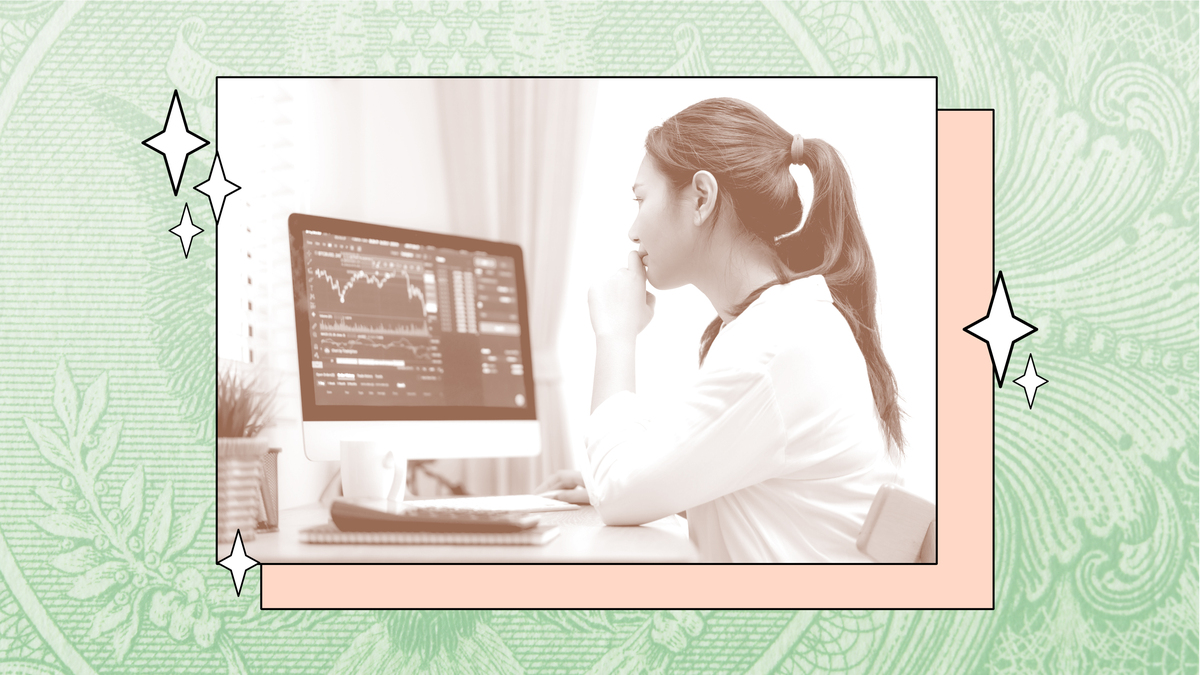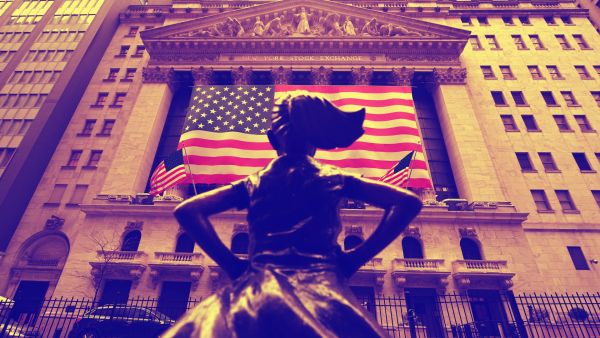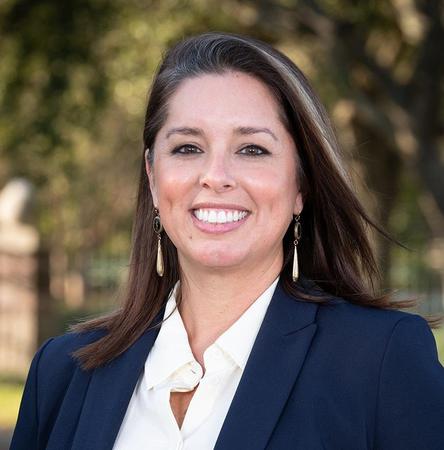Investing for Beginners: Your Guide to the 4 Types of Investments
It all starts with understanding the basic asset classes.

Alexa von Tobel
Investing: The word can present an endless amount of options, possibilities, and even stress. You've probably thought about investing—maybe you've contributed to your employer-sponsored 401k, or dabbled with a few stock trades. You might trust your financial advisor, use an investment app, or scour the Internet for stock tips—but do you really know how the stock market works based on your unique needs?
Before you invest a dime, you have to understand the different asset classes so you know where to invest over your lifetime, based on your goals and situation. (If you're already well-versed in this topic, then visit our Complete Guide to Investing hub for more action plans.)
When it comes to the major asset classes, here are the four main buckets:
1. Cash and cash alternatives
2. Fixed income (or bonds)
3. Equities (or stocks)
4. and Alternatives
Each asset class incurs greater risk, and potentially greater reward, as you move along. Work these terms into your lexicon as you strive for financial independence and more.
Cash and Cash Alternatives
Cash is the first of four asset classes. Let’s say a portion of your funds need to be saved for a home or vacation property purchase, maybe a car or a new roof. You would want to be sure that portion is in a low-risk investment that is liquid, or accessible to you, quickly, when it is needed. You could choose to park your dollars in a Money Market Account, a U.S. T-Bill or possibly even a CD.
CD
A CD is a Certificate of Deposit and is similar to a savings account but holds your money for a specific period of time—six months, one year, two years, five years or and longer. The bank that issues you the CD will pay you interest during the selected length of time (classified as income), and at the end of the set period you will receive your principal back—that is when the CD matures.
U.S. T-Bill
A U.S. T-Bill is backed by the U.S Treasury Department and allows the investor to make a small return (interest) on their funds over the course of one year or less. T-Bills are affordable for many, starting at $1,000 each, and are considered low-risk investments. Like with many investments, the longer the time between purchase and maturity, the greater the return.
Money Market Account
A Money Market Account can be an account at a bank or a mutual fund. Money Market Accounts are safe and accessible when needed. You will receive a small return for allowing the institution to borrow your funds to use in their overnight lending to other institutions and even companies.
Get exclusive access to fashion and beauty trends, hot-off-the-press celebrity news, and more.
Fixed Income
This is a large category, so I want to focus on a few of the most popular options within fixed income. Fixed income works exactly like it sounds—a fixed amount of interest (income received) on a fixed schedule. Interest is usually paid semi-annually.
Municipal Bonds
Municipal Bonds are debt securities that can be issued by state and local governments which the investor will purchase in exchange for interest payments and return of principal, principal is the initial dollar amount used at the time of purchase. Municipal bonds are issued (sold) to raise funds for projects like parks and bridges.
“A municipal bond may sound like a lot of jargon but all it is is an organization–be it a company or the government–borrowing money for a period of time and agreeing to pay it back with interest,” says Alexa von Tobel. Municipal bonds backed by the U.S. government are intended to be low risk because we trust the government to be there to pay it back.
Interest paid on municipal bonds can be tax-free, making them appealing to investors in higher tax brackets.
Corporate Bonds
Corporate Bonds are another debt security, but issued by a company to acquire the capital it needs for expansions, improvements and possibly even acquisitions. The minimum investment is usually $1,000 just like with T-Bills and can be issued with maturities between 1 and 30 years. The longer the duration, the more sensitive the bond can be to interest rate changes. Many investors like corporate bonds because they can invest in a company they like.
Fixed income does have a certain degree of risk, but typically lower than stocks, and can offer a slightly greater return than with cash and cash equivalents.
Now, let’s move on to the most popular of the four asset classes: equity securities.
Equity Securities
When you purchase a stock you are actually buying a share, partial ownership, of a company and are in turn called a “shareholder.” The more shares you buy the greater your ownership in the company. Individual investors purchase certain stocks for a variety of reasons, maybe they shop there regularly, have a family member who works there or just like the way they do business. Whatever the reason, stocks are the most widely traded and can be the most misunderstood asset class.
Some investors want to generate income with potentially less volatility from their stock portfolio and in that case they would choose dividend paying stocks. By owning a dividend paying stock you can actually “get paid” for owning shares of that company. Not every company pays a dividend so you would need to work with a financial professional if an income producing portfolio is your goal. An example; if you own 100 shares of a company that pays a $1.50 annual cash dividend your portfolio would generate $150, each year, for owning shares of the company stock. Dividends can vary.
If you like to purchase stocks that may have fallen out of favor due to certain events or shifts in the economic cycle, then you are a value investor. value investors like to buy when many others aren’t and generally will pay less per share than if they had purchased when the company is in favor. Warren Buffet is one of the most widely known supporters of value stocks. Word of caution: Investing in value stocks requires patience and works best with long-term investment horizons.
Investing in companies that are at the forefront of innovation and product development can be exciting. If you have a higher risk tolerance, then growth stocks may be for you. Growth stocks are selected by most investors for their potential capital gains and not because they pay dividends because they usually don’t.
Alternative Investments
Alternative investments are the last asset class, and potentially the least liquid. Some examples include REITs (Real Estate Income Trusts), Venture Capital, Private Equity and Hedge Funds. Investing in alternatives may offer qualified investors the opportunity to diversify their portfolios and help reduce overall portfolio volatility.
An understanding of the asset classes and how an investment portfolio is built, based on risk tolerance and financial objectives, is of utmost importance. Once you are ready to take the plunge into fixed income, equities and/or alternative investments I would meet with a financial advisor–working with a professional can save you time and money in the long-term and many advisors will take the extra time to ensure you have a basic understanding of your portfolio and the holdings. You don’t need to become a finance whiz, but having an understanding of the basic fundamentals will help build a solid foundation.
Your Complete Guide to Investing

When it comes to building wealth, choose to be fearless by arming yourself with knowledge, and tuning out the noise.
Whether you need a 101 on investing or action plans to elevate your current portfolio, money up with Marie Claire to boost your net worth.
Disclaimer: Jacey J. Cosentino is a Financial Advisor with the Wealth Management Division of Morgan Stanley in Pensacola. The information contained in this article is not a solicitation to purchase or sell investments. Any information presented is general in nature and not intended to provide individually tailored investment advice. The strategies and/or investments referenced may not be appropriate for all investors as the appropriateness of a particular investment or strategy will depend on an investor's individual circumstances and objectives. Investing involves risks and there is always the potential of losing money when you invest. The views expressed herein are those of the author and may not necessarily reflect the views of Morgan Stanley Wealth Management, or its affiliates. Information contained herein has been obtained from sources considered to be reliable, but we do not guarantee their accuracy or completeness. Morgan Stanley Smith Barney LLC. Member SIPC.
Alternative investments often are speculative and include a high degree of risk. Investors could lose all or a substantial amount of their investment. Alternative investments are appropriate only for eligible, long-term investors who are willing to forgo liquidity and put capital at risk for an indefinite period of time. They may be highly illiquid and can engage in leverage and other speculative practices that may increase the volatility and risk of loss. Alternative Investments typically have higher fees than traditional investments. Investors should carefully review and consider potential risks before investing.
An investment in a money market fund is not insured or guaranteed by the Federal Deposit Insurance Corporation or any other government agency. Although the Fund seeks to preserve the value of your investment at $1.00 per share, it is possible to lose money by investing in the fund.The value of fixed income securities will fluctuate and, upon a sale, may be worth more or less than their original cost or maturity value. Bonds are subject to interest rate risk, call risk, reinvestment risk, liquidity risk, and credit risk of the issuer. In the case of municipal bonds, income is generally exempt from federal income taxes. Some income may be subject to state and local taxes and to the federal alternative minimum tax. Capital gains, if any, are subject to tax.
Morgan Stanley Smith Barney LLC (“Morgan Stanley”), its affiliates and Morgan Stanley Financial Advisors do not provide tax or legal advice. Individuals should seek advice based on their particular circumstances from an independent tax or legal advisor.
Various factors, including an economic downturn, may cause a company to reduce or eliminate its dividend.
Morgan Stanley Smith Barney LLC is a registered Broker/Dealer, Member SIPC, and not a bank. Where appropriate, Morgan Stanley Smith Barney LLC has entered into arrangements with banks and other third parties to assist in offering certain banking related products and services.
Investment, insurance and annuity products offered through Morgan Stanley Smith Barney LLC are: NOT FDIC INSURED | MAY LOSE VALUE | NOT BANK GUARANTEED | NOT A BANK DEPOSIT | NOT INSURED BY ANY FEDERAL GOVERNMENT AGENCY
CDs are insured by the FDIC, an independent agency of the U.S. Government, up to a maximum of $250,000 (including principal and accrued interest) for all deposits held in the same insurable capacity (e.g. individual account, joint account, IRA etc.) per CD depository. Investors are responsible for monitoring the total amount held with each CD depository. All deposits at a single depository held in the same insurable capacity will be aggregated for the purposes of the applicable FDIC insurance limit, including deposits (such as bank accounts) maintained directly with the depository and CDs of the depository. For more information visit the FDIC website at www.fdic.gov.
CRC4833073 7/22

I am a Financial Advisor for Morgan Stanley, where I assist individuals, families, businesses, foundations, and non-profits with modern, comprehensive, mission-aligned planning and service. I am based in Pensacola, Florida.
- Alexa von TobelFounder & Managing Partner of Inspired Capital

